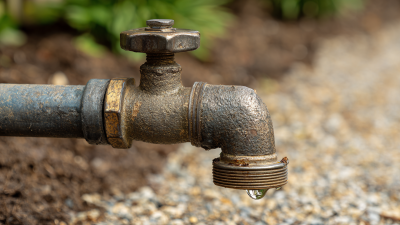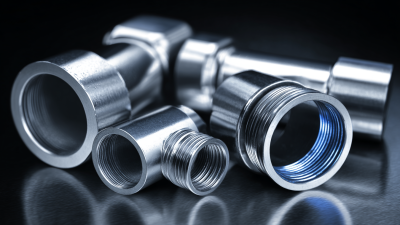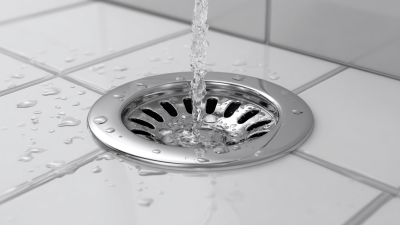
Made in America
Get Connected With



Email Us
sale@abrvpartsacc.com
Call Us
+1 (626) 448-2100
Made in America
Get Connected With




When it comes to ensuring a reliable and durable plumbing system, the significance of choosing the right sewer pipe connections cannot be overstated. Renowned plumbing expert, John Thompson, emphasizes, "The integrity of sewer pipe connections is crucial for preventing leaks and ensuring long-lasting performance." This statement underscores the importance of making informed decisions when selecting the appropriate connections for your sewer system.
Choosing the best sewer pipe connections can not only save homeowners from costly repairs down the line but also enhance the efficiency of the entire plumbing system. With numerous options available on the market, understanding the key factors that influence your choice is essential. From material selection to compatibility with existing plumbing, several considerations play a pivotal role in ensuring that the connections you choose are both effective and trustworthy.
In this article, we will explore the top five essential tips for selecting the best sewer pipe connections. By arming yourself with the right knowledge and expert advice, you can navigate this critical aspect of plumbing with confidence, ensuring that your sewer system remains in optimal condition for years to come.
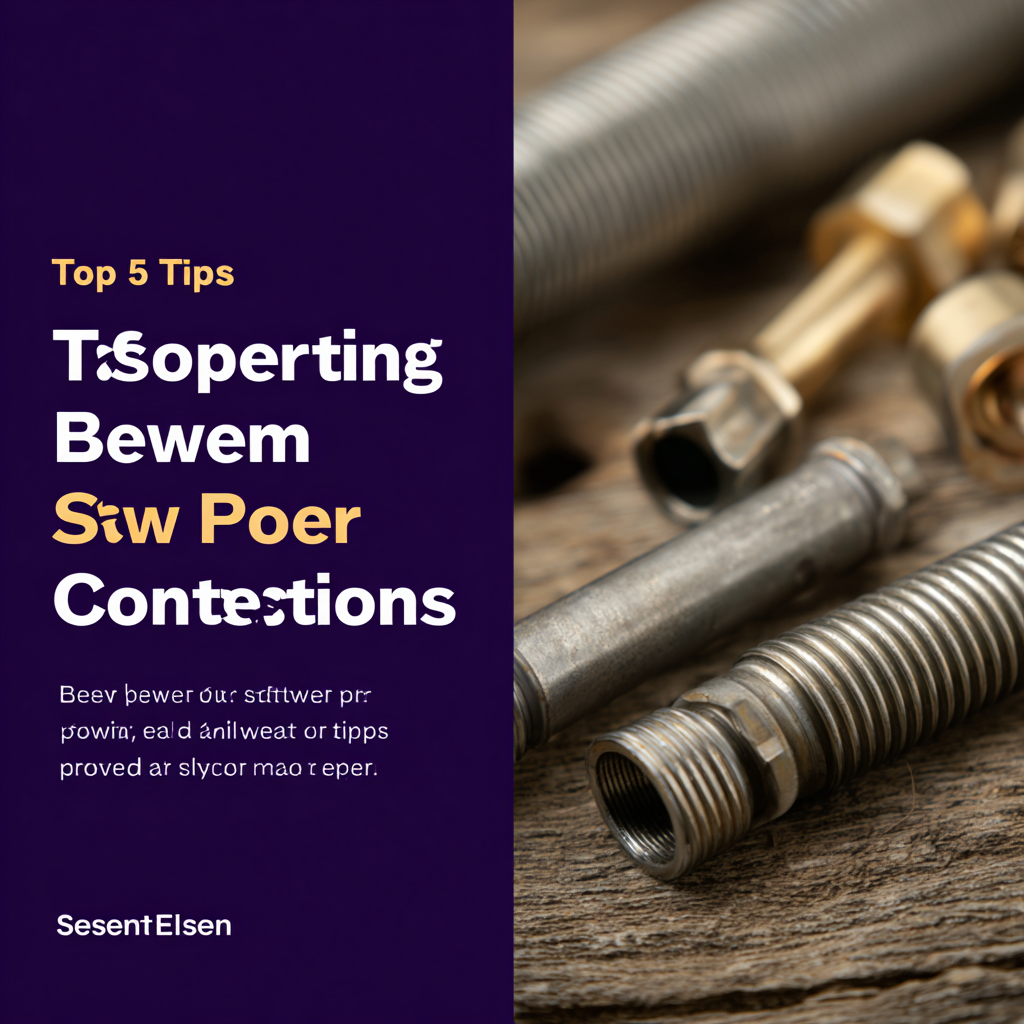
When choosing the best sewer pipe connections, it's essential to understand the different types available and their specific applications. The success of a plumbing project often hinges on selecting the appropriate materials, such as PVC, copper, or PEX, each of which has unique characteristics that influence their performance in sewer systems.
For instance, PVC pipes are commonly used due to their durability and cost-effectiveness, making them a popular choice for both residential and commercial sewer applications. However, it's crucial to consider factors such as the intended use, the nature of the wastewater, and local regulations when making your selection.
Recent developments highlight the importance of addressing sewer misuse and fixing faulty connections. Authorities are increasingly focusing on preventing misconnections, which can lead to significant environmental issues. Understanding the intricacies of sewer pipe connections not only aids in compliance with industry standards but also contributes to the sustainability of plumbing systems. Engaging in proactive measures, such as utilizing specialized fittings and ensuring proper installation, can mitigate risks associated with sewer misconduct, ultimately protecting public health and the ecosystem.
When it comes to selecting the best sewer pipe connections, evaluating material durability is paramount. The longevity of sewer systems largely depends on the materials used in their construction. According to the Environmental Protection Agency (EPA), over 70% of sewer system failures can be traced to inadequate material resistance to corrosion and degradation. As such, understanding the properties of various pipe materials is essential for ensuring long-lasting connections in any sewer installation.

PVC, for instance, has gained immense popularity due to its impressive durability and resistance to both chemical and biological corrosion. Reports suggest that PVC pipes can last up to 100 years when properly installed and maintained. Likewise, ductile iron offers significant strength and longevity, making it a preferred choice for larger sewer systems. Industry studies indicate that ductile iron pipes can withstand high pressures and are highly resistant to cracking, with an expected lifespan exceeding 50 years. Evaluating these durability factors ensures that property owners and city planners make informed decisions, ultimately leading to reliable and effective waste management solutions.
When selecting sewer pipe connections, understanding fitting sizes and compatibility is crucial for ensuring a reliable and efficient drainage system. The first consideration should be the size of the pipes involved. It is essential to match the diameter of the new connection with existing pipes to prevent clogs and ensure optimal flow. Using adapters or reducers can accommodate differences in size, but careful attention must be paid to potential flow restrictions they might introduce.
Another critical factor is the material compatibility between the pipes and connections. Different materials, such as PVC, ABS, or cast iron, are used in plumbing systems, and not all are suitable for direct connections. Chemical reactions and environmental conditions can cause materials to degrade or fail if incompatible. Additionally, the type of sewer system—whether it is residential or commercial—can dictate specific standards and requirements, making it necessary to consult local codes and regulations for compatibility details.
Ensuring the right fittings promotes longevity and efficiency in sewer systems, helping to prevent costly repairs in the future.
When it comes to sewer pipe connections, the importance of proper installation techniques cannot be overstated. A well-executed installation not only ensures longevity but also prevents costly leaks and repairs in the future. Amateur attempts at connecting sewer pipes can lead to misalignments, which can obstruct flow and create serious plumbing issues. Therefore, enlisting professional assistance is crucial. Experts possess the necessary knowledge and tools to guarantee that connections are secure and conform to local plumbing codes.
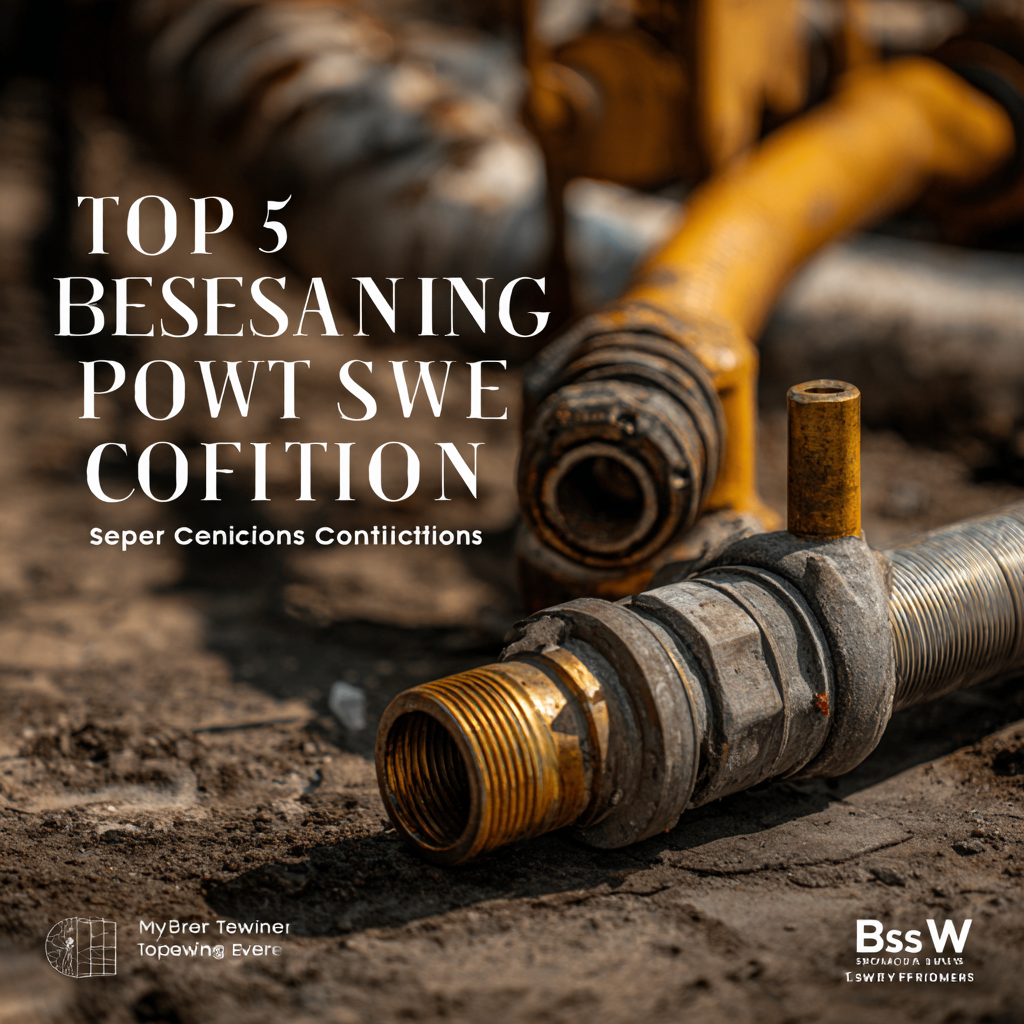
One essential tip for creating effective sewer pipe connections is to use high-quality materials that are compatible with your existing system. This can prevent corrosion and degradation over time. Additionally, it’s vital to consider the slope of the pipes; maintaining the correct slope will facilitate adequate drainage and prevent backups. Lastly, always double-check that all seals and joints are watertight. Professional plumbers utilize specialized techniques to accomplish this, mitigating the risk of future leakage and ensuring peace of mind.
Ultimately, investing in skilled assistance and meticulous installation practices will save you time and money in the long run.
When selecting sewer pipe connections, the balance between cost and quality is pivotal. While budget constraints often drive decisions, investing in high-quality materials can save homeowners significant amounts in repairs and replacements down the line. Low-cost options may seem attractive initially, but they often lead to issues such as leaks, blockages, and premature failure, resulting in unexpected expenses and tedious maintenance.
Moreover, understanding the long-term implications of your choices is essential. Quality sewer pipe connections, made from durable materials, ensure reliable performance and longevity, ultimately justifying their higher upfront cost. It's important to conduct thorough research, comparing different brands and products while considering their warranties and customer reviews. By prioritizing quality, homeowners can alleviate future stress and financial strain, leading to a more effective and efficient sewer system.

